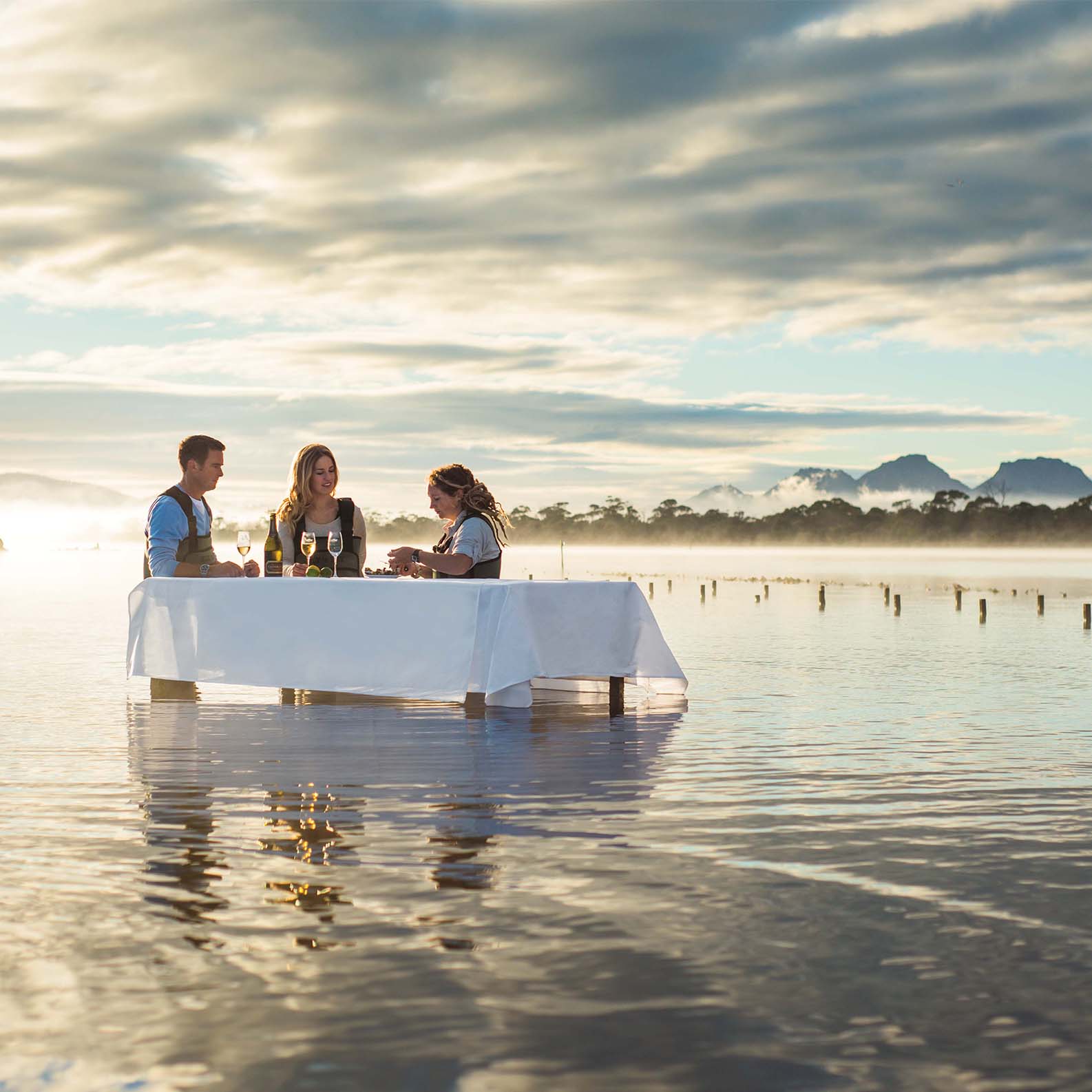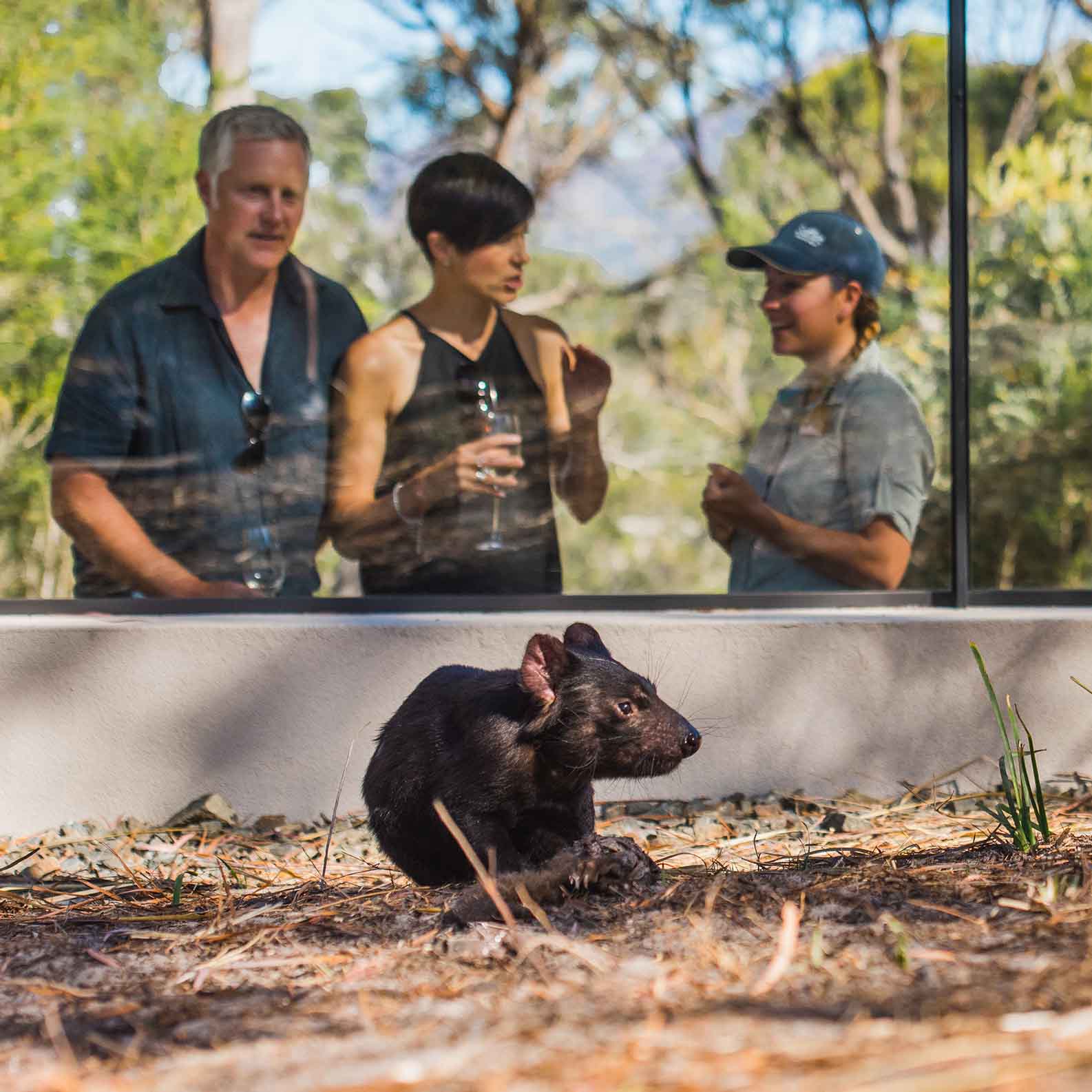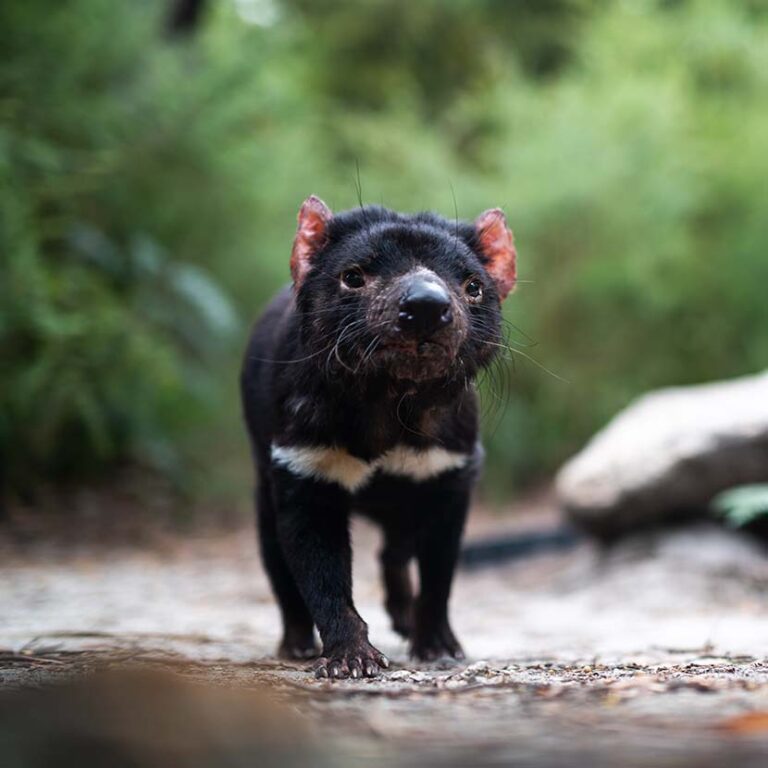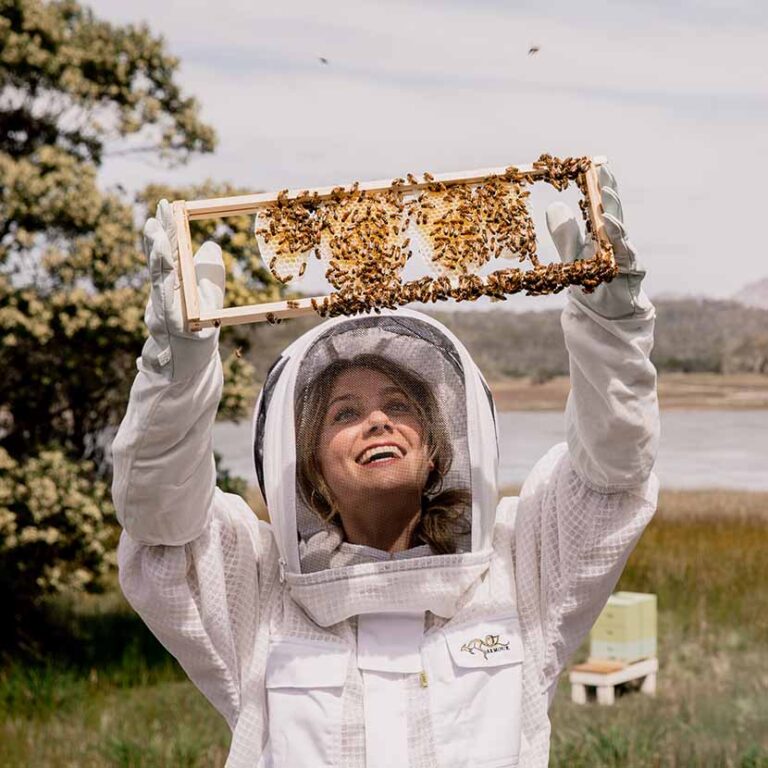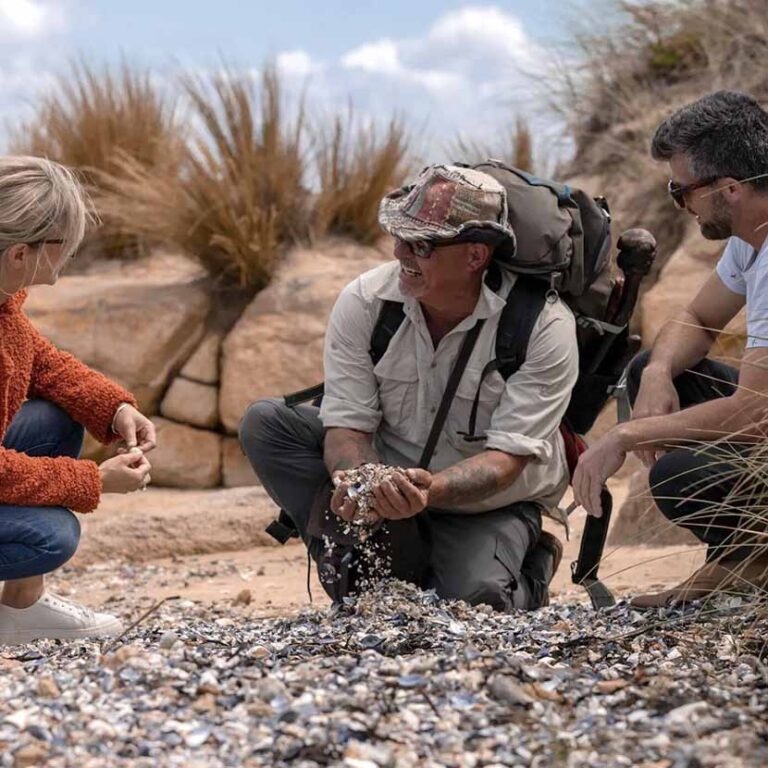Saffire Freycinet
People & Purpose
Guests are encouraged to gain a deeper understanding of Saffire’s ‘eat local’ philosophy and supply chain and can see how Saffire’s home-grown honey is produced or step into a pair of waders to taste prized Pacific oysters while learning about marine ecology. View case study
Saffire Freycinet was designed and built on a framework of sustainability principles that underpin every aspect of the lodge’s architecture, daily operations, supply chain and guest experience.
Guests are encouraged to gain a deeper understanding of Saffire’s ‘eat local’ philosophy and supply chain during their stay.
Opportunities include donning a full-body apiarist suit to see, up-close, how Saffire’s home-grown honey is produced, or stepping into a pair of waders on a local oyster farm to taste prized Pacific oysters while learning about wetland and marine ecology. Saffire has partnered with First Nations guide, Mick Quilliam who leads coastal walks that reveal the history of the Traditional Owners of Oyster Bay and the complexity and richness of the local flora and fauna. Guests can sample bush tucker, learn about foraging tools and gain their own appreciation of connecting to the land and sea through the eyes of the Palawa people.
The theme of ‘connection to place’ also manifests in Saffire’s menu. Saffire sources produce from local east coast providers and growers such as the Fisher family at Freycinet Marine Farm and Claudio Radenti at Freycinet Vineyard, both of whom have earned national acclaim. Plus, sourcing produce from sustainable farms Tongola Cheese and Long Name Farm where staff from Saffire Freycinet also visit as part of their training and education. These and many more suppliers are key to Saffire’s goals of culinary excellence and sourcing more than 85% of its produce from Tasmanian producers.
“We aim to inspire guests by drawing them into an intimate exchange with the essence of Tasmania; by providing a unique and authentic perspective of raw beauty and character and an immersive connection to the magnificent surrounding environment. We are proudly Tasmanian.”
Dylan Counsel, General Manager
One of Saffire’s most significant sustainability initiatives is the establishment of an onsite, one-hectare, free-range enclosure that provides sanctuary – and a ‘luxury retirement home’ – for endangered Tasmanian devils.
Tasmanian devils are the world’s largest marsupial carnivore and are found only in Tasmania. They are now on the International Union for Conservation of Nature Red List of endangered species due to a rare form of contagious cancer (Devil Facial Tumour Disease) that has decimated the population.
Saffire, together with guests, has raised more than $175,000 for Tasmanian devil research. It is a major sponsor of Wildcare’s Devil Fund, which provides funding support for the Menzies Institute of Medical Research in Hobart, which has been researching a solution since devils faced extinction in 2014. The Institute had a major breakthrough in 2022, when it created a vaccine that successfully treats the deadly disease.
The Saffire devil enclosure also provides Saffire guests with the rare opportunity to see Tasmanian devils in a natural setting, with guided tours and daily feeding. Guests are invited to ‘adopt a devil’, and to receive quarterly updates on the devil’s health, as well as news of the advances in research that will ensure their ongoing survival.
OUR LITTLE WHITE BOOK
The Luxury Lodges of Australia brochure has become a treasured and widely recognisable ‘go to’ for Australian experiential luxury, enjoyed both online and in printed form at our lodges. The brochure is available to view or download in eight languages below.


